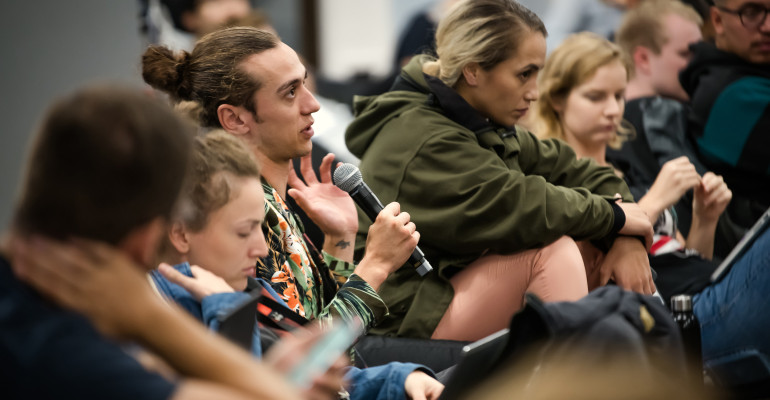We have published our interim capacity development report
25 July 2022 | Read time: 4 minutes

The report titled 'Accelerating Science Innovation Through Human and Relational Skills Development' assesses our professional development offerings for researchers.
These days, science for its own sake is no longer enough to secure most types of funding.
Research is increasingly expected to deliver tangible benefits or impacts for society. That means researchers need well-rounded skills beyond the technical so they can understand what problems society faces, inspire business and other collaborators, and build momentum with the interest and engagement of the public.
There is no science blue fairy poised to descend into labs and libraries and pluck the worthy from obscurity, however deserving they may genuinely be.
The Science for Technological Innovation National Science Challenge’s mission is to enhance the capacity of Aotearoa-New Zealand to use physical sciences and engineering for economic growth and prosperity. To that end, we invest heavily and uniquely in enhancing our researchers’ human capacity (influencing, collaborating, communicating) and relational capacity (building and maintaining networks with industry, Māori and other scientists across disciplines). Between 2015 and 2021, we have offered 133 workshops, training, webinars, tailored classes and other non-science events to our researchers. These have ranged from Mātauranga Māori immersion to media training, engaging on camera, leadership coaching, business mentoring, and understanding the commercialisation process.
SfTI researchers are offered training in pitching the potential impacts of their work on camera.
Our Capacity Development team has recently released its interim report, drawn from observation, interviews and surveys with our researchers and with stakeholders, including Māori and business. They were helped by our social science-focused Spearhead research team Building New Zealand’s Innovation Capacity (BNZIC), which is funded to track the value of our new approaches and to assess whether it’s helping researchers and helping us deliver on our mission.
The Capacity Development and BNZIC teams will also deliver a final quantitative report in the 2023-2024 year.
Initial findings have been positive:
- enhanced personal confidence among participants in our capacity development programme
- improved ability and willingness to seek out others’ perspectives and to integrate subsequent new understanding into research
- increased networks inside and outside the research community, and
- that guided practice offered within training is appearing to cement behaviour change.
In their interviews, many SfTI researchers said the non-science training they had been offered had improved their capacity.
“Building trusting relationships is a special skill and maintaining those relationships is gold.”
“Great advice and practical tips, learnt so much and got so many tips from the conversations with customers.”
“. . . there is no one way to be a good leader. Good leadership takes on many forms and I now have a deeper understanding of how certain skills and tools work best for my own leadership style.”
“Forced me to think critically about my skillset related to engagement with others. Introduced me to a range of people, which has positively expanded my networks. Forced me outside my comfort zone (in a good way).”